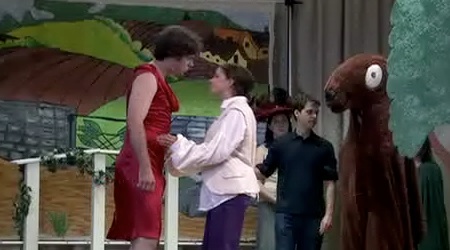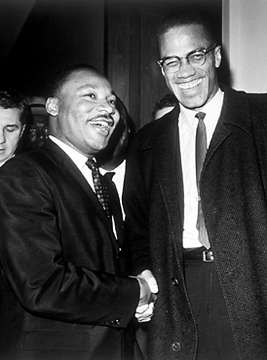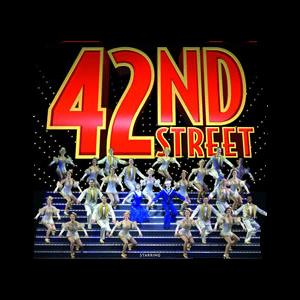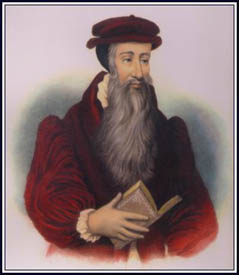It’s time once again to check in on what searches people have done to find themselves at Shakespeare Teacher, and to respond in the name of fun and public service. All of the following searches brought people to this site in the past week.
do the tudors trace their ancestry to antony and cleopatra
Probably not. Antony and Cleopatra did have three children, two boys and a girl. Cleopatra also had a child, Caesarion, from Julius Caesar. (“He plough’d her, and she cropp’d.” See how classy you sound when you quote Shakespeare?) Antony also had children from four of his wives.
After Octavius Caesar conquered Egypt (the events depicted in Shakespeare’s Antony & Cleopatra) he executed Caesarion, and gave the three children of Antony and Cleopatra to his sister Octavia. Remember (from the play) that Octavia was Antony’s last wife, so she’s now raising the children of her husband and his mistress. Little is known of the two boys, and if they had lived to adulthood, they would probably have been mentioned in sources of the time because of their parentage. It is possible they may have secretly been killed to avoid a later challenge to Octavius. But it’s also possible that they lived on and had children of their own. There’s no way to know.
The daughter of Antony and Cleopatra, named Cleopatra Selene, was married to an African king, and they had – at least – great grandchildren. Zenobia, a third century Syrian queen, claimed to be descended from this line. So it’s certainly possible that the descendants of Antony and Cleopatra are among us today. And if so, the opportunities to multiply between the 1st century and the 15th century would be massive. Therefore, we cannot rule out definitively that the Tudors are descended from Antony and Cleopatra. But could they know this for sure, let alone trace it? No. Those 1400 years weren’t exactly known for their record keeping, and there is too much motivation for people to invent a famous lineage along the way.
king henry the eighth sister margaret
Margaret Tudor was Henry VIII’s older sister. She married James IV of Scotland in 1503, and a hundred years later, her great-grandson would become King of England (after Henry VIII’s line died out).
However, if you are asking about the character played by Gabrielle Anwar in The Tudors, you’re really looking for younger sister Mary Tudor. Another Mary would have probably been too confusing, so they conflated the two women into one character. Mary Tudor was the one who married an aging king only to be widowed three months later. Mary was the one who married Charles Brandon. I’ve only seen the first season of the show, so I don’t know what the character would later become, but in the first season, Margaret’s story is that of Mary Tudor.

good shakespearean pranks
Shakespeare had a lot of plots that centered around practical jokes. Often, they would blur the line between harmless prank and vicious revenge, but you can’t make an omelette without breaking a few eggs, am I right? Without any further ado, then, is my Top Ten list of Shakespearean pranks. Drum roll, please!
10. The Merry Wives of Windsor – I’m not a fan of this play, and I’m loathe to include it on the list of Top Ten anything. But a list of Shakespearean pranks would be incomplete without it, so here it is at #10. Suffice it to say, there are a number of pranks in this play. I’d list them, but I can’t be bothered.
9. Henry IV, Part Two – Hal and Poins disguise themselves as drawers and listen in on Falstaff’s bragging. They reveal themselves, but not before Falstaff has a chance to badmouth the Prince behind his back. The fun comes when Falstaff tries to talk his way out of it.
8. Measure for Measure – The “bed trick” and the “head trick” are serious deceptions and can hardly be considered a prank. But what about what I like to call the “fled trick”? The Duke pretends to leave Vienna, but instead stays back disguised as a friar. I guess the joke’s on Angelo. Busted!
7. Twelfth Night – Malvolio, imprisoned in darkness, recieves a visit from Sir Topas the curate. Actually, it’s Feste the jester disguising his voice. Playing both parts, Feste drives the supposed madman one step closer to real madness.
6. Much Ado about Nothing – Beatrice and Benedick’s merry war takes a surprising turn when their friends allow them to overhear conversations to make each believe the other is in love. The prank becomes self-fulfilling. “Some Cupid kills with arrows, some with traps.”
5. Henry IV, Part One – Hal and Poins pretend to go along with Falstaff’s plan to rob some travellers. But they enter in disguise after the fact and rob the robbers! They reveal their prank after Falstaff has been boasting about his encounter with the unknown thieves.
4. The Tempest – Prospero uses his magic to get revenge on those who have wronged him. But the havoc only lasts the afternoon and there’s no real damage done. The whole play is one big prank.
3. A Midsummer Night’s Dream – Puck changes Bottom into an ass. And Titania, having been spiked with a love potion by Oberon, falls in love with the creature. Hilarity ensues.
2. Twelfth Night – Maria forges a letter from Olivia to Malvolio, hinting that she is in love with him. Toby, Andrew, and Fabian spy on Malvolio as he reads the letter, which tells him to come to her in an outlandish manner… and he does.
1. Othello – Iago tricks Othello into believing that his wife has been unfaithful, so he kills her. Not really a prank, you say? Check out this video.
famous monologues from king lear
There are a lot of good monologues for men from King Lear. To start with, you can find monologues from Lear here, from Edmund here, and Edgar here. The female characters in the play have some great speeches, but nothing I would particularly pull out as a monologue.

shakespeare animation
You may be looking for Shakespeare: The Animated Tales, a series of half-hour condensed animated versions of Shakespeare plays. But I’ve also done a lot of work with students creating animated versions of Macbeth, As You Like It, and The Tempest. And since this is Shakespeare Teacher, I’ll offer some information about how to do it.
When I did these animation projects, the students did the artwork in HyperStudio, they recorded the sound in SoundEffects, and they aligned the two in iMovie. It was frame-by-frame, which is time consuming, but HyperStudio had a card-and-stack interface that made it go much more quickly. That was quite a few years ago, though, and I do mostly video projects now. I don’t know if HyperStudio is even still around, and people use Audacity for sound recordings today. iMovie is still the best game in town if you want to coordinate frame animation.
I know a lot of people who like to use the website Scratch for student animations. The one problem with Scratch is that you can only view the animations from the Scratch website. You cannot download the movie file and post it to YouTube.
I’ve heard, particularly from Shakespeare teachers, a lot of enthusiasm surrounding Kar2ouche. I looked at it once, a long time ago, and I dismissed it because there are a lot of pre-made templates, and I wanted my students to visually interpret the characters themselves. But time being a factor, I would probably recommend it, and I’ve seen some Shakespeare projects that look really sharp. Every so often, someone asks me if I’ve heard of Kar2ouche.
Of course, if your kids are into Second Life, there has been some animated Shakespeare coming from that quarter as well. There is also stop motion photography, which can be done with a digital camera, iMovie, and a lot of patience.
was queen elizabeth illegitimate child shakespeare
I can interpret this in four ways:
1. Was Queen Elizabeth the illegitimate child of Shakespeare?
2. Was Queen Elizabeth’s illegitimate child Shakespeare?
3. Did Queen Elizabeth’s illegitimate child actually write the plays of Shakespeare?
4. Was Queen Elizabeth an illegitimate child according to Shakespeare?
Elizabeth was older than Shakespeare, so #1 is a clear No. I don’t know of any illegitimate children of Elizabeth. This seems to me to be something easier for a king to pull off than a queen. If she had gone through a pregnancy, I doubt she’d have kept the nickname “the Virgin Queen” for very long. So we can answer a No for #2 and #3 as well.
As for whether Elizabeth herself was illegitimate, that’s a fair question. It all depends on how legitimate you consider the annulment of Henry VIII and his first wife. But Shakespeare certainly wouldn’t have painted her as illegitimate. When she was alive, he wrote plays that glorified her ancestors, and long after she died, his play Henry VIII treated her birth as a moment of great hope for the future of England.
So I’m not sure what you’re asking, but the answer is probably No.
I leave the task of responding to the remaining search terms to my readers:
shakespeare reading list
headline tell us that macbeth saves Scotland
theme of religion in shakespeare’s “as you like it”
what inspired shakespeare to write king lear
how people were killed when shakespear was alive
madrid in april 2010 literature teachers







